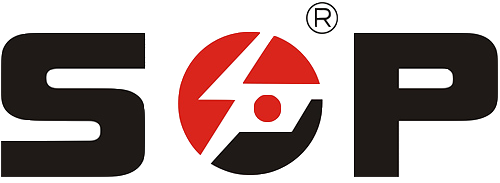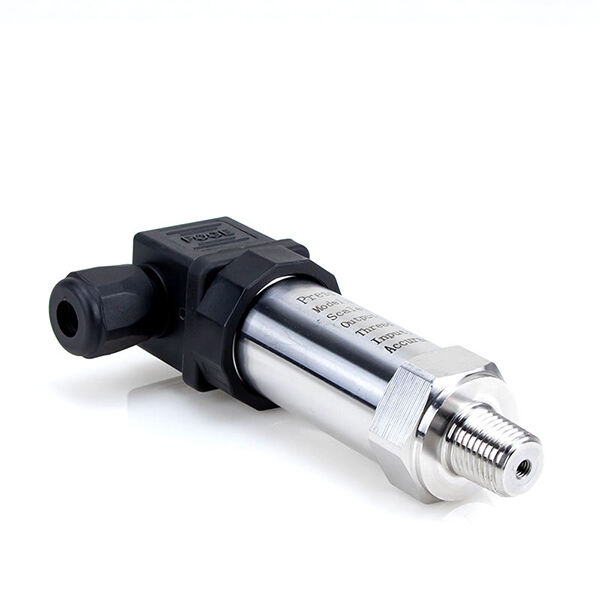Understanding the Critical Role of Pressure Measurement Technology
Pressure sensor devices have become indispensable tools across numerous industrial sectors, revolutionizing how businesses monitor, control, and optimize their operations. These sophisticated instruments measure force per unit area, providing crucial data that ensures safety, efficiency, and quality control in various applications. From ensuring the structural integrity of aircraft to maintaining optimal conditions in medical equipment, pressure sensor devices serve as the silent guardians of modern industrial processes.
The evolution of pressure sensor technology has led to increasingly precise measurements and greater reliability, making these devices essential components in both traditional and emerging industries. As automation and digital transformation continue to reshape the industrial landscape, the demand for advanced pressure sensor devices continues to grow exponentially.

Manufacturing and Industrial Processing Applications
Automotive Manufacturing Integration
The automotive industry heavily relies on pressure sensor devices throughout the manufacturing process. These sensors monitor hydraulic systems, fuel injection pressure, tire pressure monitoring systems (TPMS), and engine oil pressure. In modern vehicle production, pressure sensors ensure optimal performance of assembly line equipment and help maintain consistent quality standards in manufacturing operations.
Advanced driver assistance systems (ADAS) and hybrid vehicles particularly depend on precise pressure measurements for their sophisticated control systems. The integration of pressure sensor devices in automotive manufacturing has significantly improved vehicle safety, efficiency, and overall performance.
Chemical Processing and Refineries
Chemical processing plants and refineries utilize pressure sensor devices extensively to monitor and control various processes. These sensors play a crucial role in maintaining safe operating conditions, preventing equipment damage, and ensuring product quality. They monitor everything from reactor vessels to storage tanks, helping operators maintain optimal pressure levels throughout the production cycle.
In refineries, pressure sensors are essential for monitoring distillation columns, measuring flow rates, and ensuring the safe transfer of materials between processing units. The ability to detect minute pressure changes helps prevent potentially hazardous situations and optimizes production efficiency.

Healthcare and Medical Applications
Medical Device Implementation
The medical industry employs pressure sensor devices in a wide array of equipment and devices. From blood pressure monitoring systems to respiratory devices, these sensors provide critical data for patient care. Ventilators, in particular, rely on precise pressure measurements to deliver the correct amount of air to patients and maintain proper breathing support.
Surgical equipment also incorporates pressure sensor devices to monitor and control various parameters during procedures. These sensors help maintain precise pressure levels in minimally invasive surgeries and ensure the safe operation of medical gas delivery systems.
Pharmaceutical Manufacturing
In pharmaceutical manufacturing, pressure sensor devices are crucial for maintaining the strict quality standards required by regulatory agencies. These sensors monitor pressure levels in bioreactors, fermentation tanks, and sterile processing environments. The accurate measurement of pressure helps ensure consistent product quality and compliance with Good Manufacturing Practice (GMP) requirements.
Clean room environments in pharmaceutical facilities also depend on pressure sensors to maintain proper air pressure differentials, preventing contamination and ensuring product integrity. These devices help maintain the sterile conditions necessary for pharmaceutical production.
Aerospace and Aviation Applications
Aircraft Systems and Controls
The aerospace industry relies heavily on pressure sensor devices for various critical applications. These sensors monitor cabin pressure, hydraulic systems, fuel systems, and engine performance. Aircraft safety and operation depend on accurate pressure measurements throughout multiple systems, making these sensors essential components in modern aviation.
During flight, pressure sensors provide vital data about altitude, airspeed, and environmental conditions. They help pilots maintain safe flight parameters and ensure optimal engine performance under varying atmospheric conditions.
Space Technology Implementation
Space exploration and satellite technology utilize specialized pressure sensor devices designed to operate in extreme conditions. These sensors monitor pressure in propulsion systems, life support equipment, and various spacecraft components. The reliability and accuracy of pressure measurements are crucial for successful space missions and satellite operations.
Research and development in space technology continue to drive innovations in pressure sensor design, leading to more robust and precise measurement capabilities for future space exploration.
Environmental Monitoring and Weather Forecasting
Meteorological Applications
Weather monitoring stations employ pressure sensor devices to measure atmospheric pressure, a crucial parameter for weather forecasting. These measurements help meteorologists predict weather patterns, storm systems, and climate trends. The data collected from pressure sensors contributes to more accurate weather predictions and better understanding of atmospheric phenomena.
Advanced weather monitoring systems integrate multiple pressure sensors to create comprehensive pressure maps, enabling more precise tracking of weather systems and improved forecast accuracy.
Environmental Research and Protection
Environmental scientists use pressure sensor devices to monitor various natural systems, including groundwater pressure, ocean depths, and geological formations. These measurements help in understanding environmental changes, monitoring pollution levels, and managing natural resources effectively.
Conservation efforts and climate research benefit from the data provided by pressure sensors, helping scientists track environmental changes and develop strategies for environmental protection.
Frequently Asked Questions
How do pressure sensor devices improve industrial safety?
Pressure sensor devices enhance industrial safety by continuously monitoring system pressures, alerting operators to potentially dangerous conditions, and enabling automated safety responses. They help prevent equipment failure, reduce workplace accidents, and ensure compliance with safety regulations across various industries.
What are the latest trends in pressure sensor technology?
Current trends include the development of smart sensors with IoT connectivity, miniaturization for more compact applications, improved energy efficiency, and enhanced durability. Integration with artificial intelligence and machine learning is also advancing the capabilities of pressure monitoring systems.
How often should pressure sensor devices be calibrated?
Calibration frequency depends on the application, environment, and regulatory requirements. Generally, industrial pressure sensors should be calibrated annually, while critical applications in medical or aerospace industries may require more frequent calibration. Regular maintenance and calibration ensure continued accuracy and reliability.

